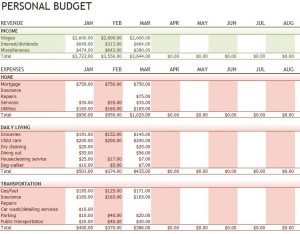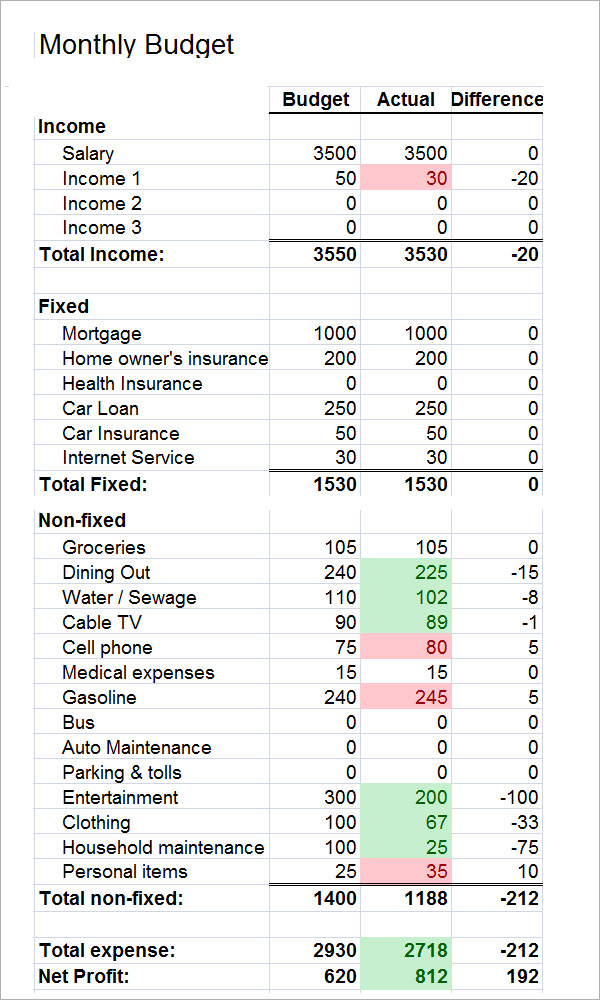

Write down all your expenses so you can see them together. Step 2: Write down all your monthly expenses and bills Maybe you find your hobbies are eating up a big chunk of your income, or that a large percentage of your discretionary funds is going to dining out.Īrmed with this information, you can move on to the next step of the process. This usually involves breaking out your bank statements and credit card bills from at least the last six months, and looking over them to add up how much you’re spending on both essential and non-essential purchases.įor example, looking at your past month’s statements may make you realize you’re spending way too much at the grocery store, or that your Amazon spending is out of control. Step 1: Go over your spending from the last few monthsįirst off, you’ll need to know where your money has been going.

So as you prepare to plan your financial life one month at a time, here are six steps to help you build a budget that works. The more you can do to ease the burden of budgeting, the more likely your spending pla n will stick. For example, will you have more fun with weekly money check-ins if you take your laptop to a coffee shop? Can you make tracking expenses into a game? Finally, how can apps and programs help smooth over the stuff you don’t like doing? Birken says you should ask yourself some important questions before you start. With that in mind, the key to successful budgeting is making it enjoyable and routine. “It’s not a once-and-done job, and there’s no shortcut to having to deal with it regularly,” she says. Emily Guy Birken, co-author of the money management book “Stacked” says that, in that sense, budgeting is a little like doing your laundry. If you have a bunch of debt dragging you down as well, your monthly budget may need to feel restrictive for a while, too - at least until you get a handle on your most unruly bills.Īdd in the fact that budgeting is an ongoing process, and it’s easy to see why so many people just don’t do it. After all, creating a spending plan usually means cutting in areas you probably enjoy, such as dining out and entertainment. We may receive a commission if you apply and are approved for a product, but our reporting is always independent and objective.Ĭrafting your own monthly budget isn’t all that complicated, but it can be tedious and downright depressing when you’re first starting out. Your CNN account Log in to your CNN accountĬNN Underscored reviews financial products such as credit cards and bank accounts based on their overall value.


 0 kommentar(er)
0 kommentar(er)
